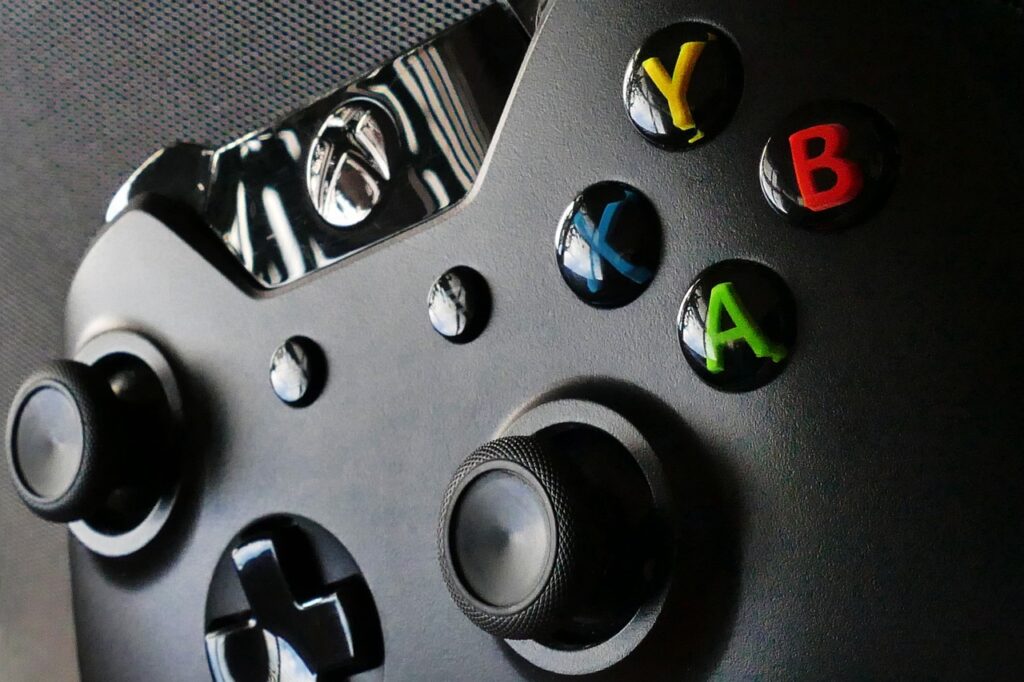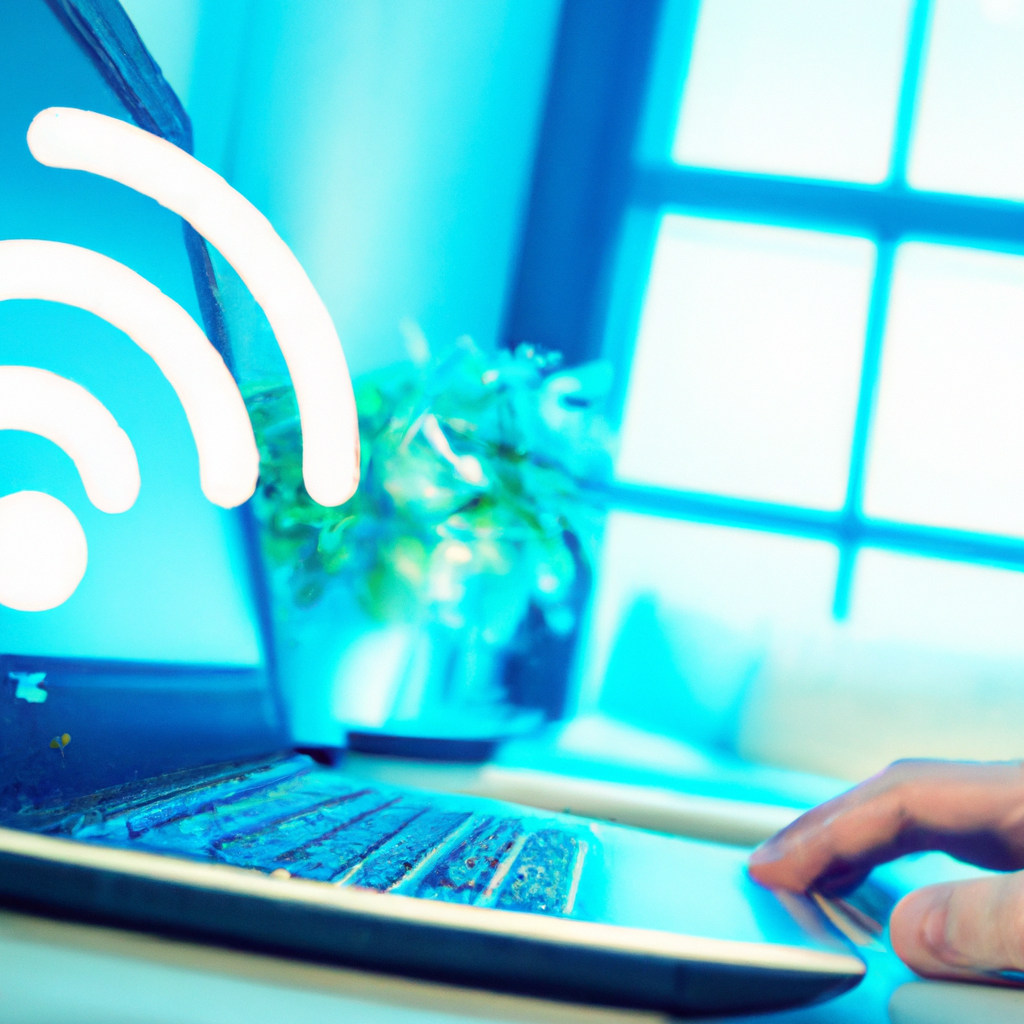How Do You Improve Wi-Fi Performance For Gaming? 10 Tips for Success
Are you tired of lagging and buffering while gaming? If so, then it’s time to boost your Wi-Fi performance for an enhanced gaming experience. In this article, we will explore the question, “How Do You Improve Wi-Fi Performance For Gaming?” Say goodbye to frustrating latency issues and hello to a seamless online gaming adventure.

Optimize Your Wi-Fi Network
When it comes to gaming, a fast and stable internet connection is crucial for a smooth and lag-free gaming experience. To improve your Wi-Fi performance and enhance your gaming sessions, there are several steps you can take. From choosing the right Wi-Fi channel to avoiding interference and optimizing your gaming setup, let’s explore the different ways you can optimize your Wi-Fi network.
Choose the Right Wi-Fi Channel
One of the first things you can do to optimize your Wi-Fi network is to choose the right Wi-Fi channel. Wi-Fi channels can become congested, especially in areas with multiple routers nearby. By selecting a less crowded channel, you can reduce interference and improve the overall performance of your Wi-Fi network. You can use Wi-Fi analyzer tools to determine which channels are the least congested and make the necessary adjustments in your router settings.
Use Wi-Fi Extenders or Mesh Systems
If you notice weak or spotty Wi-Fi signals in certain areas of your home, using Wi-Fi extenders or mesh systems can significantly improve coverage and signal strength. Wi-Fi extenders amplify the existing Wi-Fi signal, while mesh systems create a seamless network by utilizing multiple devices that work together. These solutions help eliminate dead zones and ensure a strong and stable Wi-Fi connection throughout your home, enhancing your gaming experience in every corner.
Upgrade Your Wi-Fi Router
Another way to optimize your Wi-Fi network for gaming is by upgrading your Wi-Fi router. Older routers may not support the latest Wi-Fi standards or have the necessary processing power to handle intensive gaming activities. Investing in a modern router with next-generation features, such as MU-MIMO (Multi-User Multiple-Input Multiple-Output) technology, can enhance your network’s speed and performance. Additionally, a router with a higher maximum throughput can accommodate higher bandwidth demands, resulting in smoother gameplay.
Enable Quality of Service (QoS)
Quality of Service (QoS) is a feature available in many routers that allows you to prioritize certain types of network traffic, such as gaming, over other activities like file downloads or video streaming. By enabling QoS and configuring it to prioritize gaming traffic, you can ensure that your gaming sessions receive the necessary bandwidth and low latency they require. This helps minimize lag and improves overall network performance while gaming.
Avoid Interference from Other Devices
Interference from other devices can weaken your Wi-Fi signal and impact your gaming performance. Cordless phones, microwave ovens, Bluetooth devices, and even neighboring Wi-Fi networks can all cause interference. To minimize this interference, try to keep your gaming setup away from these devices, especially if they are placed between your router and gaming device. Additionally, keeping your router away from walls or large objects can also help reduce signal blockage and improve Wi-Fi performance.
Position Your Router Properly
The physical placement of your Wi-Fi router plays a significant role in the strength and coverage of your Wi-Fi network. To optimize your network’s performance, consider the following factors when positioning your router.
Find the Central Location
Positioning your router in a central location in your home can help maximize the coverage and reach of your Wi-Fi signal. By placing it in a central spot, the signal has a better chance of reaching all corners of your home, including areas where you typically game. Ideally, try to avoid placing your router near walls, as they can absorb or reflect the Wi-Fi signal and reduce its effectiveness.
Avoid Obstacles
Obstacles such as walls, furniture, and appliances can hinder the strength and reach of your Wi-Fi signal. To optimize your network’s performance, position your router away from potential obstructions. If possible, avoid placing it behind large furniture or near thick walls. The fewer obstacles between your router and gaming device, the better your Wi-Fi signal will be.
Elevate the Router
Raising your router off the ground can significantly improve the Wi-Fi signal’s coverage and reach. Placing it on a shelf, desk, or even mounting it on a wall can help eliminate obstructions and enhance signal strength. By elevating your router, you can ensure that the signal travels more efficiently, providing better Wi-Fi performance for your gaming needs.
Consider External Antennas
Some routers come equipped with external antennas that can be adjusted for optimal signal direction and coverage. If your router has these antennas, experiment with their orientation to find the best signal reception. Sometimes, simply adjusting the angle or position of the antennas can make a noticeable difference in your Wi-Fi performance. External antennas can help focus and boost the signal, ensuring that it reaches your gaming devices effectively.
Manage Bandwidth Usage
Bandwidth management is crucial for maintaining a smooth gaming experience, especially when multiple devices share the same network. By efficiently managing your bandwidth usage, you can minimize the impact of other activities on your gaming performance.
Limit Background Activities
Background activities such as large file downloads, streaming, or cloud backups can consume a significant amount of bandwidth and cause lag in your games. To optimize your gaming experience, limit or schedule these activities during non-gaming hours. This prevents them from competing for bandwidth with your gaming sessions, ensuring a smoother and more enjoyable gameplay experience.
Close Unnecessary Applications
Running unnecessary applications in the background can consume system resources and affect your gaming performance. Close any unnecessary programs or applications that are not essential for your gaming session. This frees up system resources and allows your game to utilize more processing power and network bandwidth, improving overall performance.
Manage Downloads and Updates
Large downloads and updates can not only consume bandwidth but also cause lag spikes during gameplay. To optimize your gaming experience, consider scheduling downloads and updates to occur during non-gaming hours. This way, you can ensure that your gaming sessions receive the maximum available bandwidth without interruptions or lag caused by background downloads.
Set Bandwidth Allocation
If you have multiple devices connected to your network, assigning bandwidth priorities can help optimize your gaming experience. Many modern routers offer the option to set bandwidth allocation for different devices or applications. By assigning a higher priority to your gaming device or application, you guarantee that it receives a larger share of the available bandwidth, minimizing lag and ensuring smooth gameplay.
Reduce Network Congestion
Network congestion can occur when multiple devices are competing for the same Wi-Fi resources. To reduce network congestion and boost your gaming performance, consider the following tips.
Use Ethernet Connection
While Wi-Fi is convenient, it is susceptible to interference and can be affected by the distance between your gaming device and the router. For optimal performance and minimal latency, consider using an Ethernet connection. By connecting your gaming device directly to the router with an Ethernet cable, you eliminate the potential issues associated with Wi-Fi interference, resulting in a stable and lag-free gaming experience.
Prioritize Gaming Devices
If using an Ethernet connection is not possible, some routers allow you to prioritize specific devices or applications over others. By assigning a higher priority to your gaming device, you ensure that it receives preferential treatment, even when other devices are concurrently using the Wi-Fi network. This can help minimize latency and packet loss during intense gaming sessions.
Manage Concurrent Connections
If you have multiple devices connected to your Wi-Fi network, it’s essential to manage concurrent connections effectively. Each connected device consumes a portion of your available bandwidth, which can impact gaming performance. Consider disconnecting or temporarily disabling devices that are not in use to free up bandwidth for your gaming sessions. This can help reduce network congestion and improve overall Wi-Fi performance.
Opt for 5GHz Band
Many modern routers offer dual-band functionality, allowing you to connect devices to either the 2.4GHz or 5GHz frequency band. While the 2.4GHz band provides greater coverage, the 5GHz band offers faster speeds and less interference. If your gaming device supports it, connect to the 5GHz band to optimize your gaming performance. The higher frequency and lower congestion on the 5GHz band make it ideal for gaming and other bandwidth-intensive activities.
Implement Guest Network
If you frequently have guests connecting to your Wi-Fi network, consider setting up a separate guest network. This not only enhances your network security but also reduces network congestion. By segregating guest devices onto a separate network, you can ensure that your gaming device receives the maximum available bandwidth, unaffected by the activities of your guests. This helps maintain a stable and lag-free gaming experience.

Optimize Your Gaming Setup
To further enhance your gaming experience, consider optimizing your gaming setup for the best Wi-Fi performance.
Reduce Distance Between Router and Gaming Device
One of the most effective ways to optimize your gaming setup is to minimize the distance between your router and gaming device. The closer your gaming device is to the router, the stronger and more stable the Wi-Fi signal will be. If possible, position your gaming setup in the same room as your router or within close proximity to minimize signal loss and improve network performance.
Minimize Signal Blockage
Signal blockage can occur when there are physical obstacles between your router and gaming device. Walls, floors, and large furniture can all obstruct the Wi-Fi signal, reducing its strength and quality. To minimize signal blockage, ensure that there are as few obstacles as possible between your router and gaming device. Rearranging furniture or using signal-reflecting materials can help improve the Wi-Fi signal’s propagation and eliminate potential signal blockage.
Use Wired Connections When Possible
While Wi-Fi is convenient, wired connections generally provide a more stable and reliable connection for gaming. Whenever possible, use wired connections instead of relying solely on Wi-Fi. Hardwiring your gaming device to the router with an Ethernet cable eliminates any potential Wi-Fi interference and ensures a consistently low-latency and high-bandwidth connection.
Consider Powerline Adapters
If running an Ethernet cable from your router to your gaming setup is not feasible due to distance or physical restrictions, powerline adapters can be a viable alternative. Powerline adapters utilize your home’s electrical wiring to extend the network connection to different rooms. By connecting one adapter to your router and another near your gaming device, you can create a wired connection without the need for long Ethernet cables. This can help maintain a stable and reliable connection between your gaming device and the router, enhancing your gaming performance.
Improve Wi-Fi Signal Strength
To achieve optimal Wi-Fi performance for gaming, it’s crucial to improve the signal strength and coverage of your Wi-Fi network. Here are some methods to consider.
Upgrade Antennas or Router
If your Wi-Fi router has detachable antennas, upgrading them to higher-gain or directional antennas can help improve the signal strength and coverage. Higher-gain antennas focus the signal, allowing it to reach greater distances and penetrate obstacles more effectively. Additionally, if your router is outdated or does not support the latest Wi-Fi standards, consider upgrading to a newer model with improved signal strength and coverage.
Use Signal Boosters or Repeaters
Signal boosters or repeaters can amplify and extend the Wi-Fi signal, especially in areas with weak or no coverage. These devices pick up the existing Wi-Fi signal and rebroadcast it, effectively increasing the signal strength and coverage area. By strategically placing signal boosters or repeaters throughout your home, you can eliminate Wi-Fi dead zones and ensure a strong and reliable connection for your gaming needs.
Eliminate Wi-Fi Dead Zones
Wi-Fi dead zones are areas in your home where the Wi-Fi signal is weak or nonexistent. These dead zones can greatly impact your gaming performance, causing lag and disconnections. To eliminate Wi-Fi dead zones, identify the areas with poor signal strength and consider solutions like Wi-Fi extenders, mesh systems, or strategically relocating your router. By extending the reach of your Wi-Fi network to these areas, you can ensure a consistent and reliable connection for uninterrupted gaming.
Consider Wi-Fi Signal Analyzers
Wi-Fi signal analyzers are software or hardware tools that help you measure and analyze the strength and quality of your Wi-Fi signal. These tools provide valuable insights into your network’s performance, allowing you to identify potential issues and make informed decisions to optimize your Wi-Fi setup. Wi-Fi signal analyzers can help you determine signal congestion, interference sources, or areas with weak signal strength, enabling you to make necessary adjustments for improved performance.

Secure Your Wi-Fi Network
Securing your Wi-Fi network not only protects your internet connection from unauthorized access but also ensures that your network resources are dedicated to gaming rather than shared with unwanted users.
Enable WPA2 or WPA3 Encryption
Encryption is essential for securing your Wi-Fi network and preventing unauthorized access. Ensure that your router is configured to use WPA2 (Wi-Fi Protected Access 2) or the newer WPA3 encryption standards. These encryption protocols provide robust security and help safeguard your network from potential threats.
Create a Strong Wi-Fi Password
Using a strong and unique Wi-Fi password is another crucial step in securing your network. Avoid using common or easily guessable passwords, such as “password” or “12345678.” Instead, create a complex password consisting of a combination of uppercase and lowercase letters, numbers, and special characters. A strong Wi-Fi password prevents unauthorized users from accessing your network and utilizing your bandwidth, ensuring a more secure and reliable gaming experience.
Disable Guest Network if Unused
If you have enabled a guest network but rarely have visitors using it, consider disabling it when not in use. Guest networks create an additional access point that can potentially consume network resources and introduce vulnerabilities if not properly secured. Disabling the guest network efficiently allocates all available bandwidth and resources to your gaming sessions, optimizing your network’s performance and security.
Regularly Update Firmware
Keeping your router’s firmware up to date is essential for network security and performance. Router manufacturers often release firmware updates that address security vulnerabilities, add new features, and improve overall network stability. Regularly check for firmware updates for your router model and install them to ensure that your network is protected against emerging threats and operating at its full potential.
Optimize PC Settings
In addition to optimizing your Wi-Fi network, fine-tuning your PC’s settings can contribute to a smoother gaming experience.
Update Network Drivers
Keeping your network drivers up to date is vital for optimal network performance. Outdated or incompatible network drivers can cause connectivity issues, lag, and other network-related problems. Visit the manufacturer’s website for your network adapter or motherboard to download and install the latest drivers. Up-to-date drivers ensure compatibility, stability, and better overall performance.
Disable Background Processes
Disabling unnecessary background processes on your PC can help free up system resources and improve gaming performance. Certain applications and processes running in the background can consume CPU power, memory, and network bandwidth, impacting your gaming experience. Review the list of running processes in your task manager and consider disabling any that are not essential for your gaming session. This allows your PC to allocate more resources to the game, resulting in smoother gameplay and reduced lag.
Optimize Game Settings
Each game comes with its own set of graphics and performance settings that can be adjusted to optimize your gaming experience. Experiment with different settings, such as resolution, graphics quality, and anti-aliasing, to find the right balance between visual fidelity and performance. Lowering graphics settings can reduce the strain on your PC’s hardware, resulting in higher frame rates and smoother gameplay. Finding the optimal game settings for your specific hardware configuration can significantly enhance your gaming experience.

Monitor Network Performance
Monitoring your network performance allows you to identify any potential issues and make the necessary adjustments to optimize your network for gaming.
Use Network Monitoring Tools
Network monitoring tools can provide valuable insights into your network’s performance, such as latency, packet loss, and overall network stability. These tools track and analyze your network traffic, allowing you to identify any bottlenecks or issues that may be affecting your gaming experience. By utilizing network monitoring tools, you can efficiently diagnose and troubleshoot any network-related problems, ensuring the best possible performance for your gaming sessions.
Check Latency and Ping
Latency and ping are critical in online gaming, as they measure the delay between your actions and their effect in the game. High latency or unstable ping can result in lag and disrupt your gameplay. Regularly check your latency and ping using online tools or in-game network performance indicators. If you notice consistently high latency or ping spikes, consider troubleshooting your network or contacting your internet service provider (ISP) to address any potential connectivity issues.
Monitor Bandwidth Usage
Monitoring your bandwidth usage is helpful in understanding how your network resources are allocated and identifying any excessive bandwidth consumption. Many routers have built-in bandwidth monitoring features that allow you to track which devices or applications are using the most bandwidth. By monitoring your bandwidth usage, you can ensure that there is sufficient bandwidth available for your gaming sessions and make any necessary adjustments to optimize your network’s performance.
Consider Wired Gaming Options
While Wi-Fi is convenient, wired gaming options offer more reliable and stable connections, especially for competitive gaming or online multiplayer experiences.
Use Ethernet Cable
Using an Ethernet cable to connect your gaming device directly to the router is the most reliable and stable option for gaming. Ethernet cables provide a dedicated and high-speed connection, ensuring minimal latency and packet loss. If your gaming device is within close proximity to the router, consider using an Ethernet cable for the best gaming performance.
Powerline Network Adapters
Powerline network adapters offer a wired connection using your home’s electrical wiring. This can be a practical solution if running a long Ethernet cable is not feasible or aesthetically pleasing. Powerline adapters consist of two adapters – one connected to the router and another near your gaming device. The adapters communicate through your home’s electrical wiring, providing a wired connection without the need for additional wiring. While not as fast as a direct Ethernet connection, powerline adapters can offer a more stable and reliable connection compared to Wi-Fi.
By following these tips and optimizing your Wi-Fi network, gaming setup, and PC settings, you can significantly improve your Wi-Fi performance for gaming. Enjoy smoother gameplay, reduce lag, and enhance your overall gaming experience by implementing these optimizations. So dive into your favorite games with confidence, knowing that your Wi-Fi network is optimized to deliver the speed and stability you need for an immersive gaming adventure.





